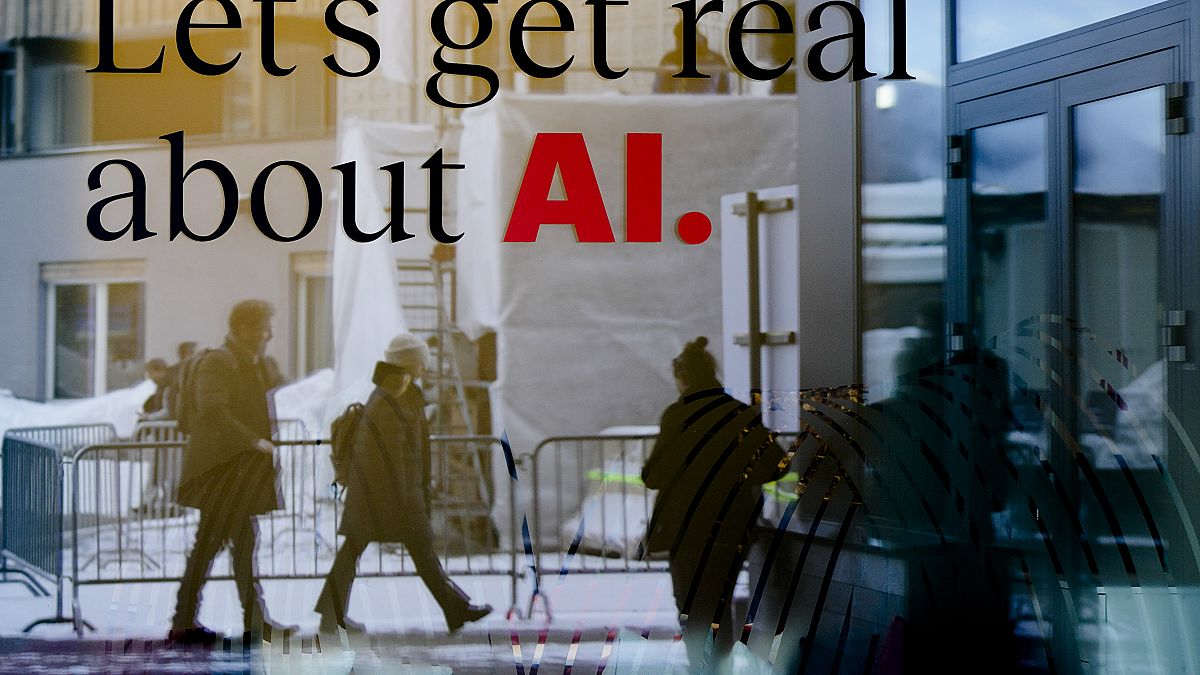AI could take up to 3 million UK jobs, report finds

Over time, artificial intelligence could lead to up to three million job losses in the UK, but that number will be offset by the new jobs created in the sector, a new report says.
Artificial intelligence (AI) could eventually displace between one and three million jobs in the UK, according to a new study.
Researchers from theTony Blair Institute say that they expect unemployment to rise gradually as AI is adopted across the wider economy, with a peak loss of between 60,000 to 275,000 jobs a year.
The report said that the shift in unemployment will “be capped and ultimately offset” as AI creates new demands and changes for workers.
“Our best guess is that AI’s peak impact on unemployment is likely to be in the low hundreds of thousands and that the effect will unwind over time,” the Impact of AI on the Labour Market report says.
AI that performs cognitive tasks could replace workers in fields like administration, sales, customer service or data-intensive industries like banking and finance, the report said.
AI could grow the UK economy up to 14 per cent
Firms will likely adopt AI in big numbers because the report estimates that companies could save almost a quarter of private-sector workforce time with AI, or the equivalent output of 6 million workers.
London is already Europe’s biggest hub for generative AI, with 30 per cent of Europe’s new startups based in the UK’s capital city, according to a Junestudy from venture capitalist firms Accel and Dealroom.
For now, the impact of AI on the economy is “relatively modest” and could raise GDP by up to 1 per cent over the next five years and the level of unemployment up to 180,000 by 2030.
In the long run, the labour productivity and time savings brought about by AI could boost economic growth by between 5 and 14 per cent by 2050, the report said, but the scale of that boost will depend on how expensive AI could be for companies to implement and how widely it’s adopted.
The report also suggested that bigger AI companies will have to scale their technologies and develop them into tools that can be easily and cheaply implemented by smaller companies.
There’s also potential for AI to improve the labour supply, by increasing “the quantity, quality and supply of workers in the economy,” the report said..
This could be achieved by improving the performance of students in the classroom, by being used in preventative medical care to avoid fewer lost work days and by matching prospective employees with the right types of jobs for them.
The report suggests that governments should equip workers with knowledge of the workplace changes coming due to AI, and give them financial safety nets and retraining opportunities to maximise employment.
Researchers also suggest governments put in place contingency plans if job losses and AI adoption do not go as smoothly as predicted.
Related
Llyods Recruiting Engineers In India After Slashing Jobs In UK
Lloyds Banking Group is planning to hire hundreds of engineers in India as the company plans to shift its employment opportunit
Major new funding for music acts that supercharged careers of…
£1.6m Music Export Growth Scheme to support 58 independent UK artists to tour the world Funding will boost UK’s creative industries – a key growth se
Well-loved restaurant chain to close 8 venues across UK as…
A BELOVED restaurant chain has announced it will close eight venues across the UK, scrapping 158 jobs in the process.Owners are pointing the finger at Labour's
US adds 151,000 jobs in February as unemployment rate ticks…
The latest figures published by the US Bureau of Labor Statistics today (7 March) came in below market expectations, with economists polled by












